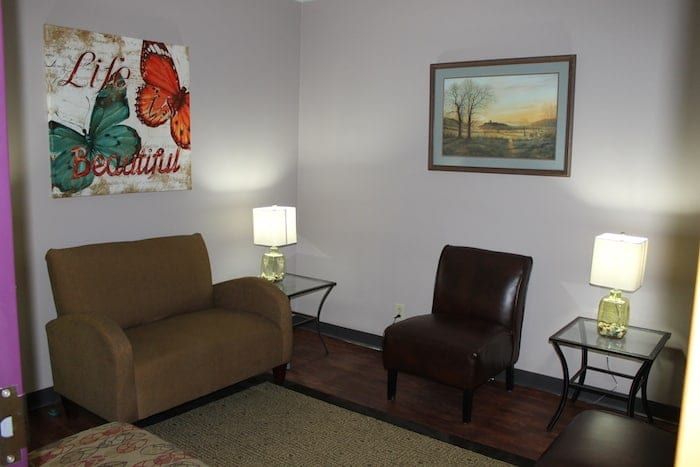Integrated Health Cooperative aims to provide ‘whole health’ options to marginalized communities
Recently, I was asked, “Have you heard about the new ‘transgender clinic’ opening in Nashville?” The answer to that question was a resounding, “No!” But the news was intriguing, and a few weeks later, I walked into the Integrated Health Cooperative, LLC, (IHC) in Madison.
What I found there quite defied my expectations.
In reality, the IHC is not a “transgender clinic,” but “a grass roots organization comprised of a group of individuals that identified a need for underserved individuals that are diligently seeking a major life transformation.”
The idea for the clinic was born with Clinical Director Billy Manley and Project Director Steven Glowicki. Initially Billy considered opening a small nursing clinic, but, in November 2012, Steven was ending his work with a program for housing adults with mental illness. Looking to return to Nashville full-time, Steven found that Billy’s ideas matched his own interest “in advocacy for vulnerable populations.”
According to Steven, Billy was just the man to lead such an initiative: “I’ve known Billy for 7 years, and he’s one of the most compassionate people I’ve ever met. Even while he was in his nursing program, he was couponing to buy food for people in need and teaching knitting and organizing a group to make blankets for the homeless. He’s always gone out of his way to meet the needs of those in need.”
Billy admits his initial ignorance about the transgender community, but developing friendships, combined with his profession as a family practice nurse practitioner working in addiction and mental health, made him curious about transgender healthcare needs.
The transgender community is a vulnerable population with regard to access to healthcare. Two booked solid physicians provide most of the Nashville transgender community’s basic needs, forcing many to seek help in Atlanta. But because of the Atlanta organization’s charter wording, many who travel to Atlanta were turned away empty-handed.
The first real meeting with members of the transgender community was at Steven’s home in February of 2013. Since that time, both Billy and Steven commented on the commitment of the transgender community in seeing the clinic open, committing themselves to its mission far beyond what will benefit them directly.
Indeed, at this point the clinic cannot possibly be sustained completely by offering transgender services. The IHC’s model will instead be to reach out to other groups facing healthcare disparities. In addition to alcohol and drug treatment services, particularly for those with associated mental health disorders, the clinic’s other major focus is the kink community.
A general lack of understanding of the kink community and their culture creates a lack of access in subtle ways. Billy described a common situation that illustrates this: “people in the kink culture tell us that people don’t take them or their nontraditional relationships seriously. For instance, I’ve had people tell me about being treated coldly, or even laughed at, by their doctors when they asked for a reference to counseling when they get uncollared by their partner.”
IHC’s focus on varied, and sometimes non-overlapping, marginalized communities requires maintaining the comfort and sense of security of, and a safe and welcoming environment for, each group. Billy explains, “We’ll be dividing up days so that our days of providing drug and alcohol treatment services won’t overlap with our services to transgender or kink services. It is essential that we create a place for individuals who experience healthcare disparities to come and feel accepted, not just tolerated.”
Given the centrality of the transgender community to their mission though, IHC will provide a broader range of services to the transgender community than one might normally consider basic healthcare. For instance, as soon as salon chairs can be secured, volunteers are ready to provide salon services to transgender individuals. Billy explains that this sort of care is, however, part of whole health: “transgender individuals encounter what some people call transwhisperers, people at supposedly transaware places where people are pointing you out and outing you, intentionally or not.” Psychologically this creates a resistance in transgender people from seeking services that enhance their feeling of well-being, while also stoking psychological issues which are already difficult for the individuals.
The goal of IHC is to expand such services and create a place that supports whole health, physical and mental while building the IHC into an LGBTQI health center focused on whole health and wellness.
The next major step in the work of IHC is establishing a non-profit to undertake the healthcare policy aspect of the transgender community by increasing awareness, organizing advocacy, and legislative initiatives. As the clinic builds and the non-profit develops, they will also support the development of education outreach initiatives, such as offering sensitivity training for clinics and doctors, as well as other providers, to help them become more aware of and receptive to the needs of diverse communities.
While the clinic does have a nurse employed, its work is primarily supported by a committed group of volunteers. According to Steven, “We had an opening launch/lunch day and had about 30 potential volunteers show up for a walk-through. Since then those volunteers have helped us move from having about 25% of the building remodeled to having only a couple of rooms that still need major attention.”
The clinic will hold volunteer meetings, followed by an open house, the first Thursday of each month. These sessions will run from 6 to 8 p.m.. Community members interested in the IHC mission can attend open house sessions on the third Saturday of each month. The next upcoming session is May 17 at 1 p.m..
For more information about volunteering, contact volunteer@ihccoop.com. For basic inquiries about IHC or for information about services, contact info@ihccoop.com.
